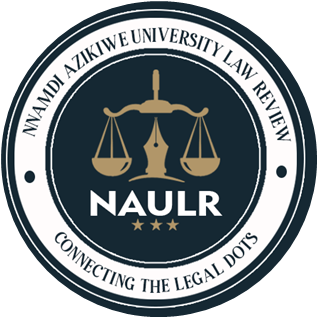By
EKHORUTOMWEN GABRIEL EKHATOR*
Abstract
Noise pollution is one of the fastest growing environmental concerns in the world. Noise is not healthy for human beings. Noise from religious activities in Nigeria has become a peculiar and predominant menace suffered quietly by people. Nigeria is a country with one of the largest number of churches and relatively high number of mosques in the world and a fertile soil for the growth of independent churches. This increase in numbers of religious houses is borne out of the understanding that in Nigeria, freedom of religion is entrenched in Section 38 of the Constitution of the Federal Republic of Nigeria 1999 and other Human Rights Instruments. Central to the exercise of this right to freedom of religion is the question of environmental effects which the resultant noise pollution has on the people who reside in those environs. The right to freedom of religion entrenched in the Constitution of the Federal Republic of Nigeria 1999 and other Human Rights Instruments is an inalienable right however, the exercise of this right in form of religious practices is not expected to disturb the peace of the environment or cause any public health disturbance. When it becomes disturbance to the quiet enjoyment of other’s property it amounts to actionable nuisance that attracts the sanction of law.
This article discusses the issue of noise nuisance with regard to religious activities as well as the direct effect on the human health and the environment particularly in Nigeria. Furthermore, it examines religious freedom and its limitations. In addition, it also examines the regulatory measures in combating nuisance in places of worship in Nigeria. The article concludes with salient recommendations which if implemented could successfully regulate nuisance emanating from noise pollution generated through religious activities in Nigeria.
